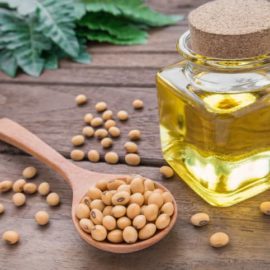Along with many other beauty and personal care sectors, the suncare market is going through intense transformations following new consumer demands. The use of sunstick formats and new multilevel-protection claims are some of the formulas that brands are experimenting with in search for the perfect solution that will grab consumers’ attention.
A panoramic picture of the suncare area reveals a number of relevant trends that brand should be aware of:
- A demand for multilevel protection and added skin benefits, along with sun protection. For instance, in the UK, 33% of users of sunscreen, aftersun (39%) and self-tan (38%) think that added skincare benefits are important when making their purchase decision, according to Mintel.
- Consumers are increasingly informed and demand for companies to be transparent about product benefits and efficacy. Scientifically-proven results are preferred, particularly in the post-pandemic scenario.
- Join wellness and health-focused consumers. Wellness is increasingly understood as a combination of both physical and mental wellbeing. This new holistic perspective is being incorporated by brands that offer targeted products around wellness narratives. For instance, suncare innovations promote wellness, beauty rituals based on sensorial experiences (through the use of textures, scents…).
- Eco-branding and eco-claims are growing in suncare too. Eco-friendly cosmetics are becoming market leaders in every BPC sector. While sustainable suncare hasn’t been in the spotlight as much, they’re one of the most relevant trends to watch for the future.
Taking these trends into account, we analyze the need for sustainable, wellness-focused suncare solutions and how a particular sunstick formula that incorporates chia seeds can be the answer.
Content
The gap for natural and eco-friendly suncare products: An opportunity
Suncare formulas are joining other BPC sectors in their search for solutions that tap into natural, efficient and sustainable trends.
On the one hand, new needs arise, such as the demand for suncare products that focus on other skin issues. While hydration has long been an associated product to suncare products, consumers are increasingly interested in other claims such as antiage, antioxidant and nourishing benefits.
On the other hand, and while suncare consumers have traditionally been less demanding about sustainability, environmentally-friendly demands have begun permeating this category as well.
In fact, the top five fastest-growing claims in the European suncare market were all linked to sustainability in the period between 2016 to 2020.
Suncare products present diverse opportunities for innovation regarding sustainability:
- Concerns about packaging, which might translate into a boost on stick formats that eliminate unnecessary packaging materials.
- Waterless formulas as a response to the demand for more environmentally-friendly production processes.
- Products with a natural origin and are familiar with consumers (such as superfoods), which are understood as less damaging.
Chia extract sunstick: the recipe for suncare success
Chia seeds are considered a superfood due to their high nutrient content. As part of the diet, it’s widely known as an excellent vegetable source of fiber, antioxidants, calcium, proteins, and omega-3 fatty acids (alpha-linolenic acid).
As superfoods such as turmeric scrub quickly become mainstream in skincare products, chia seeds can become the new superfood related to suncare.
Their main benefits include:
- Antioxidant: Chia’s antioxidant activity is mainly due to its ascorbic acid (vitamin C), chlorogenic acid and caffeic acid content, all of which have been proved extensively through scientific research. For instance, Farriol et al. (1994) studied the effect of vitamin C on a culture of aged human fibroblasts subjected to oxidative stress. The results showed that vitamin C presents cytoprotective effects on aged fibroblasts at all doses tested. Caffeic acid and chlorogenic acid, present in chia seeds, have also been shown to be highly effective against free radicals and oxidative processes in general, as well as in inhibiting lipid peroxidation.
- Anti-inflammatory activity: several studies demonstrate the anti-inflammatory activity of caffeic acid, which is present in chia seeds (Yang et al. 2013) (Ullah, 2016). At the same time, according to a study by Carrillo et al. (2016) proteins extracted from defatted chia seeds have anti-inflammatory properties, (335.41%).
- Great moisturizing properties. Chia seeds play an important role in the regulatory activity in transepidermal water loss. In fact, carbohydrates such as those present in chia seeds are widely used active ingredients in the cosmetics field. Monosaccharides are hygroscopic, which means that they are able to adsorb water and thus contribute to the retention of water in the stratum corneum.
Provital’s chia extract is the natural photoprotective ingredient that stands out as the new solution for suncare formulas responding to present and future consumer sensibilities.
Incorporated into innovative waterless formulas such as the sunstick format, this ingredient holds an immense potential for suncare products, a potential enhanced by its ISO 16128-Natural Origin 99.4% certification and its paraben-free nature.
No comments yet
There are no comments on this post yet.





Leave a comment